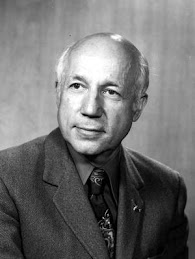
Title of Article: Spice Healer
Author: Gary Stix
Source: Scientific American
Date published: February 2007
Date obtained: December 1st 2008
Spice Healer pertains to the Metabolic Processes Unit of Study
Link to the Article: http://www.sciam.com/article.cfm?id=spice-healer
Summary of the Article:
Spice Healer is an article investigating the effects of using curcumin, an ingredient found in curry, to treat diseases ranging from Alzheimer’s to cancer. This compound played a vital role in early Indian medicine, and was used to heal wounds, cleanse blood, and cure stomach ailments. Although most of the clinical trials surrounding curcumin and its effects have been performed on animals, they have yielded unprecedented results. This extraordinary spice targets malignant cells with such a diverse attack that it takes them a very long time to develop a resistance to it. M.D. Anderson (a widely renowned cancer institution) went as far as suggesting a dose of 8 grams of curcumin daily for cancer patients.
In my opinion, this article sheds light on a revolutionary new experimental treatment for diseases such as cancer and Alzheimer`s. This could be an enormous advancement in the field of cancer research, which is incessantly searching for a cure. As this treatment is yet to have experienced large scale clinical trials, its effects on humans are not yet confirmed. For M.D. Anderson to go ahead and suggest this treatment to all cancer patients is a very bold move, and one that could yield dire consequences. In reading this article, I have learned that some researchers are very quick to praise their own results, without always taking the necessary precautions to find out if their discovery (in this case curcumin) has any negative side-effects in human patients.
In the latter part of Spice Healer, there is a section surrounding the research of an Israeli scientist that suggests possible cancer-promoting effects of curcumin. Yosef Shaul found that in the cases of Myeloid leukemia, Colon cancer, and breast cancer, high doses of curcumin caused the degradation of a cancer-preventing protein. If this research is valid, then M.D. Anderson could have made a vital error, and raised an ethical issue, in suggesting this spice for all cancer patients, without having done any large scale clinical trials beforehand.







No comments:
Post a Comment